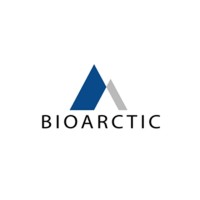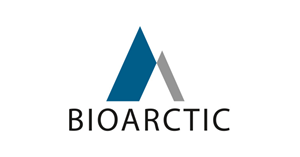BioArctic and Eisai: Navigating the Waters of Alzheimer’s Treatment
October 17, 2024, 10:30 am
In the world of biopharma, few stories resonate as powerfully as the quest to combat Alzheimer’s disease. BioArctic AB, a Swedish company, stands at the forefront of this battle. Their flagship product, Leqembi® (lecanemab), has emerged as a beacon of hope for those grappling with early stages of Alzheimer’s. Yet, the journey is fraught with challenges, as recent developments in Australia illustrate.
BioArctic’s collaboration with Eisai, a Japanese pharmaceutical giant, has been pivotal. Together, they have crafted a drug that has gained approval in several countries, including the United States and Japan. Lecanemab is not just another medication; it’s a lifeline for patients with mild cognitive impairment and early Alzheimer’s dementia. The drug works by targeting amyloid-beta, a protein that forms plaques in the brains of Alzheimer’s patients. By reducing these plaques, lecanemab aims to slow cognitive decline.
However, the path to global acceptance is not smooth. On October 17, 2024, Eisai announced that Australia’s Therapeutic Goods Administration (TGA) had initially declined to register lecanemab. This decision sent ripples through the biopharma community. Eisai is not one to back down easily. They plan to request a reconsideration of this decision, hoping to make lecanemab available to Australian patients within 90 days. The stakes are high. A successful appeal could open doors for countless individuals in need.
This setback highlights the complexities of drug approval processes. Each country has its own regulatory landscape. While lecanemab has received accolades in many regions, Australia’s cautious stance raises questions. What does it take for a drug to gain acceptance? The answer lies in rigorous clinical trials and robust data. Eisai’s Phase 3 Clarity AD trial provided significant evidence supporting lecanemab’s efficacy. The results were promising, yet the TGA remains vigilant, prioritizing patient safety above all.
BioArctic’s strategy hinges on its innovative research. The company is not just a player in the Alzheimer’s arena; it’s a pioneer. Their proprietary BrainTransporter™ technology is a game-changer. This technology enhances the delivery of antibodies across the blood-brain barrier, a significant hurdle in treating neurological diseases. By leveraging this technology, BioArctic aims to improve the efficacy of its treatments, potentially revolutionizing how Alzheimer’s is approached.
The company’s recent announcement regarding its Nomination Committee underscores its commitment to governance and shareholder engagement. As of September 30, 2024, three major shareholders—Demban AB, Ackelsta AB, and the Fourth Swedish National Fund—representing a substantial portion of the company’s shares and votes, will guide the nomination process for the upcoming Annual General Meeting. This move is crucial. It ensures that the voices of significant stakeholders are heard as BioArctic navigates its future.
The Nomination Committee will play a vital role in shaping the company’s leadership. They will propose candidates for the Board of Directors and set the stage for the company’s strategic direction. This is not just about governance; it’s about vision. The decisions made here will influence BioArctic’s ability to innovate and respond to market demands.
As BioArctic prepares for its Annual General Meeting in May 2025, shareholders are encouraged to participate actively. The company invites proposals, fostering a culture of collaboration and transparency. This engagement is essential in a field where rapid advancements can shift the landscape overnight.
The collaboration between BioArctic and Eisai is a testament to the power of partnership in the biopharma sector. Since 2005, their alliance has focused on developing treatments for Alzheimer’s disease. The relationship has yielded significant results, with lecanemab being the most notable. However, the journey is ongoing. Both companies are poised to expand their research portfolios, exploring new avenues in neurodegenerative disease treatment.
The global market for Alzheimer’s treatments is competitive. As more players enter the field, the pressure mounts. BioArctic and Eisai must stay ahead of the curve. Their commitment to research and development is unwavering. With ongoing clinical trials and a robust pipeline, they are well-positioned to tackle the challenges ahead.
In conclusion, BioArctic and Eisai are navigating a complex landscape in the fight against Alzheimer’s disease. Their journey is marked by triumphs and setbacks, but their resolve remains strong. As they seek to make lecanemab available to patients in Australia and beyond, the world watches closely. The stakes are high, but so is the potential for change. With innovative technologies and a commitment to patient care, BioArctic is not just a company; it’s a beacon of hope in the battle against Alzheimer’s. The road ahead may be uncertain, but the destination is clear: a future where cognitive decline is no longer an inevitable fate.
BioArctic’s collaboration with Eisai, a Japanese pharmaceutical giant, has been pivotal. Together, they have crafted a drug that has gained approval in several countries, including the United States and Japan. Lecanemab is not just another medication; it’s a lifeline for patients with mild cognitive impairment and early Alzheimer’s dementia. The drug works by targeting amyloid-beta, a protein that forms plaques in the brains of Alzheimer’s patients. By reducing these plaques, lecanemab aims to slow cognitive decline.
However, the path to global acceptance is not smooth. On October 17, 2024, Eisai announced that Australia’s Therapeutic Goods Administration (TGA) had initially declined to register lecanemab. This decision sent ripples through the biopharma community. Eisai is not one to back down easily. They plan to request a reconsideration of this decision, hoping to make lecanemab available to Australian patients within 90 days. The stakes are high. A successful appeal could open doors for countless individuals in need.
This setback highlights the complexities of drug approval processes. Each country has its own regulatory landscape. While lecanemab has received accolades in many regions, Australia’s cautious stance raises questions. What does it take for a drug to gain acceptance? The answer lies in rigorous clinical trials and robust data. Eisai’s Phase 3 Clarity AD trial provided significant evidence supporting lecanemab’s efficacy. The results were promising, yet the TGA remains vigilant, prioritizing patient safety above all.
BioArctic’s strategy hinges on its innovative research. The company is not just a player in the Alzheimer’s arena; it’s a pioneer. Their proprietary BrainTransporter™ technology is a game-changer. This technology enhances the delivery of antibodies across the blood-brain barrier, a significant hurdle in treating neurological diseases. By leveraging this technology, BioArctic aims to improve the efficacy of its treatments, potentially revolutionizing how Alzheimer’s is approached.
The company’s recent announcement regarding its Nomination Committee underscores its commitment to governance and shareholder engagement. As of September 30, 2024, three major shareholders—Demban AB, Ackelsta AB, and the Fourth Swedish National Fund—representing a substantial portion of the company’s shares and votes, will guide the nomination process for the upcoming Annual General Meeting. This move is crucial. It ensures that the voices of significant stakeholders are heard as BioArctic navigates its future.
The Nomination Committee will play a vital role in shaping the company’s leadership. They will propose candidates for the Board of Directors and set the stage for the company’s strategic direction. This is not just about governance; it’s about vision. The decisions made here will influence BioArctic’s ability to innovate and respond to market demands.
As BioArctic prepares for its Annual General Meeting in May 2025, shareholders are encouraged to participate actively. The company invites proposals, fostering a culture of collaboration and transparency. This engagement is essential in a field where rapid advancements can shift the landscape overnight.
The collaboration between BioArctic and Eisai is a testament to the power of partnership in the biopharma sector. Since 2005, their alliance has focused on developing treatments for Alzheimer’s disease. The relationship has yielded significant results, with lecanemab being the most notable. However, the journey is ongoing. Both companies are poised to expand their research portfolios, exploring new avenues in neurodegenerative disease treatment.
The global market for Alzheimer’s treatments is competitive. As more players enter the field, the pressure mounts. BioArctic and Eisai must stay ahead of the curve. Their commitment to research and development is unwavering. With ongoing clinical trials and a robust pipeline, they are well-positioned to tackle the challenges ahead.
In conclusion, BioArctic and Eisai are navigating a complex landscape in the fight against Alzheimer’s disease. Their journey is marked by triumphs and setbacks, but their resolve remains strong. As they seek to make lecanemab available to patients in Australia and beyond, the world watches closely. The stakes are high, but so is the potential for change. With innovative technologies and a commitment to patient care, BioArctic is not just a company; it’s a beacon of hope in the battle against Alzheimer’s. The road ahead may be uncertain, but the destination is clear: a future where cognitive decline is no longer an inevitable fate.

